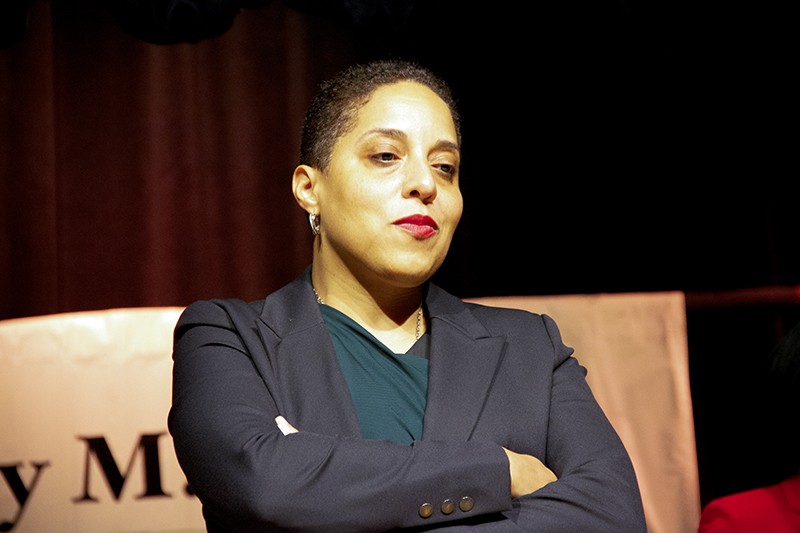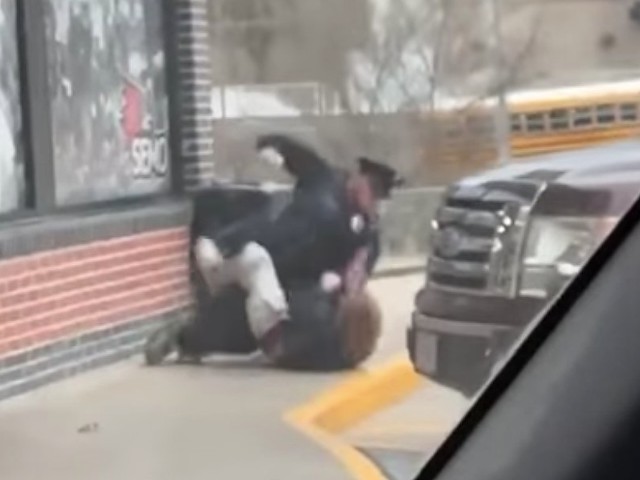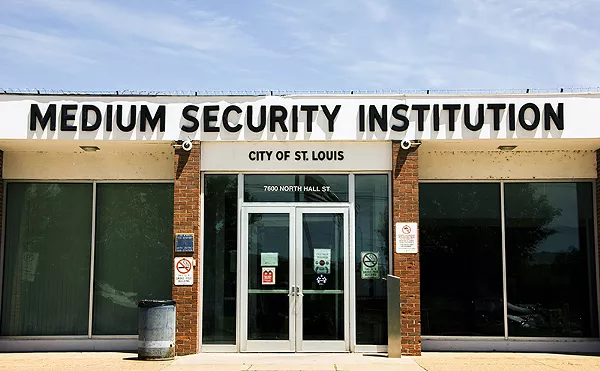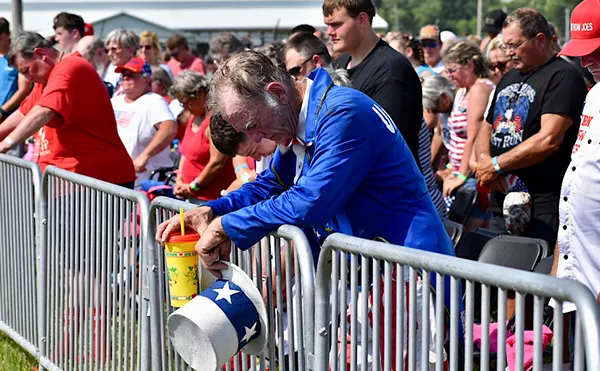
DANNY WICENTOWSKI
St. Louis Circuit Attorney Kim Gardner has become a flashpoint in St Louis politics.
In the day-to-day preoccupations of life and politics, it can be easy to lose sight of an obvious fact: In just a couple of election cycles, the political leadership of St. Louis has been transformed. Gone, at least temporarily, are the days of the proudly "moderate” corporate-centric neoliberals who have dominated local political circles for generations. At all levels of political leadership — Congress, local executives, and legislators — the present makeup of electeds is decidedly less white, more female and more likely to identify with a “progressive” upsurge. And there is a very good chance this year’s municipal elections will continue the trend.
This context makes the following question quite urgent: What exactly does it mean to be a progressive in St. Louis today? I do not mean the question rhetorically or academically. I realize there are entire graduate seminars on the history of Progressivism in the United States and abroad; with apologies to political science scholars, that is not what I intend with this question. Rather, my inquiry is prompted by a series of recent events.
Take, for example, a debate that played out publicly in the race for the new Ninth Ward aldermanic seat between current alders Tina Pihl and Michael Gras, and newcomer Michael Browning. All three have, at various times, been associated with the progressive faction of local Democratic politics. But Browning exposed one clear dividing line when he suggested that we could actually make traffic stops safer by disarming traffic enforcement.
Most of the local media response was predictable. One report characterized the proposal as “strip[ping] police of their service weapons.” The reliably condescending Post-Dispatch editorial board called it “progressivism run amok.” Oh my.
But the loudest opposition — aside from the St. Louis Police Officers Association — came from Browning’s aldermanic opponents. Gras warned that Browning “has some dangerous ideas.”
Pihl acknowledged legitimate concerns about police brutality but rejected the idea of disarming any officers on the basis that “constituents deserve full service at all times.”
I hardly presume that any of the aforementioned parties know, or care, that, nearly 2 1/2 years ago, four local organizations (including ArchCity Defenders, the organization I lead) released a resource that advocated for immediately removing police from six public functions, including “accident response and traffic enforcement”; or that, over two years ago, the People’s Plan coalition of nearly 50 progressive local organizations released a platform that calls for re-envisioning public safety by, in part, civilianizing certain police functions, including traffic enforcement; or that these and other organizations and coalitions have been engaging with and organizing everyday St. Louisans around these calls to action for years.
I do not for a moment believe that any of these facts — or the fact that unarmed traffic enforcement is a successful practice in cities all over the world — oblige anyone to agree with the disarming proposal, elected or not. But it does beg the question: If there is such consensus among the progressive base in St. Louis, what should we expect from elected officials who call themselves progressive?
An even more recent example began with a heart-wrenching traffic accident that left a visiting teenager having both her legs amputated. By now, some details are etched in our collective memory: A high school volleyball standout from Tennessee was walking with her family downtown when a 21-year-old driver collided with another car and caused the fateful accident. The driver was without a valid driver’s license and had been released pretrial on a criminal charge with electronic GPS monitoring. Dozens of “violation reports” had previously been filed against the driver while out on bond, many of which were related to dead batteries on his ankle bracelet.
What happened next was equal parts curious and predictable. A wave of ire and criticism was directed at one person: Circuit Attorney Kim Gardner. Why? Because she had failed to bring about the incarceration of this 21-year-old menace before he could drive erratically and cause the awful accident. Calls for Gardner to step down, “soul-search,” or be forced out of office came from all directions, including a powerful chorus of prominent progressive lawmakers. All united in sound and fury: The city’s prosecutor was to blame.
While the drama focused entirely on Gardner, this is not and never should have been about her. Gardner — who herself has honored progressive commitments in some ways, such as by taking on the corrupt police establishment and seeking exoneration in cases of wrongful conviction, and abandoned them in others, with a dismal record on existing capital cases and a default practice of seeking pretrial detention or onerous release conditions — will not determine the long-term consequences of the crash and its aftermath.
For anyone other than the irreparably injured teen, the condemned 21-year-old and their families, the long-term consequences of these events will be determined by the lessons that we learn from them. This is why scapegoating Gardner is so shortsighted and counterproductive. Setting aside the astounding predictive power attributed to Gardner, the logic of these attacks is that the prosecutor is to blame because, in this instance, she did not do everything in her power to ensure that a defendant’s bond was revoked and that she was not sufficiently committed to him spending many months awaiting trial in a cage. In other words, the lesson is that any prosecutor, now or in the future, should seek preventive detention whenever possible or risk overwhelming public backlash for any harm that occurs. What’s worse, some critiques amounted to calls for stricter enforcement of electronic monitoring, a digital extension of our boundless propensity for carceral solutions to social and economic problems.
This is exactly the opposite of what we need, and it bears no resemblance to progressive public-safety principles. Any attempts to contextualize the issue and offer structural solutions that could prevent future injuries and save lives were secondary at best. The feeding frenzy was simply a collective act of self-preservation. Progressive values or analysis did not even come into play, and we are all left with worse future prospects as a result.
I imagine that some may be reading this and wondering how, in the wake of such pain and loss, could we possibly be concerned with anything other than what could have removed this driver from behind the wheel of this car? How, at this time, can we concern ourselves with the broader implications? But the answer is that we must do so because the long-term risks to all of us inhere in exactly these moments. Reactionary politics do not derive from times of comfort and peace; they derive from times of crisis, anger and fear. To simply sit in pain and feel, deeply—with others, without reaction—is itself a radical act that offers the potential for healing. And it makes possible an analysis that is not bound by the immediacy of that pain and anger, but instead addresses the core questions and root causes of the violence and harm that we see all around us.
I have focused the bulk of this commentary on questions of public safety in part because this is where I tend to see progressive ideas most readily betrayed. But we could ask very similar questions about debates surrounding development incentives, public education or equitable distribution of public funds like ward capital, to name just a few. On these issues and more, it is often difficult to find any discernable through-line among local “progressive” lawmakers.
And now is precisely the time to insist upon such through-lines. I write this with deep fondness for many progressive friends and lawmakers in this town. We have been arm-in-arm in past moments, demanding economic justice, fighting to close jails and fund abandoned communities, resisting racist state violence, and promoting dignity for our unhoused neighbors. But now “the progressives” are in power and must decide how to spend that moment in the sun. Either we are going to spend that time looking over our shoulders, placating “moderate” detractors and hoping to win their approval, or we are going to embody the courage and boldness that brought us to this political moment. The former is a trap, and the latter is only possible if we get clear on a shared analysis that guides us forward.
We should never take for granted the decision to engage in the electoral realm as an arena of struggle. Across history, there are movements that have made great material gains by engaging in this arena. There are just as many that have seen their movements fractured and crushed under the weight of electoral ambition and cowardice. But organizers and advocates in the recent history of St. Louis have, indeed, chosen to fight in this arena, and have been integral in bringing us to this moment of political possibility. We should not be surprised to find ourselves at this inflection point, but we should be insistent about the terms of our engagement.
Labels generally get a bad rap, but they can provide valuable signaling when they bear consistent meaning. I understand “progressive” as a kind of umbrella term that signals a political orientation toward justice and equity and away from status quo hierarchies and institutions of oppression — in social policy, economics, democracy and public safety. In this sense, it is progressives, here in St. Louis and elsewhere, who are engaged in a project of constructing new possibilities that are structurally different from our present conditions. I believe that project is well worth it. But if, instead, we have already reached the point in the ascendancy of local progressive leadership at which the word is meant to be one of convenience and political expediency that requires nothing and tolerates anything, count me out.
At the RFT, we welcome well-reasoned essays on topics of local interest. Contact [email protected] if you've got something to say.
Coming soon: Riverfront Times Daily newsletter. We’ll send you a handful of interesting St. Louis stories every morning. Subscribe now to not miss a thing.
Follow us: Google News | NewsBreak | Reddit | Instagram | Facebook | Twitter






